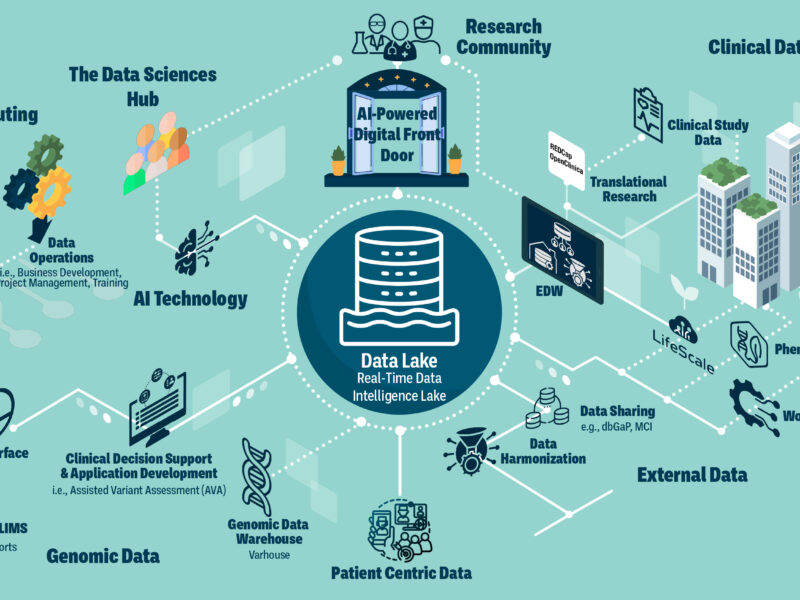Immune Profiling Leads to Implications for Immunotherapy for NF1-Associated Tumors
Immune Profiling Leads to Implications for Immunotherapy for NF1-Associated Tumors https://pediatricsnationwide.org/wp-content/themes/corpus/images/empty/thumbnail.jpg 150 150 Abbie Miller Abbie Miller https://pediatricsnationwide.org/wp-content/uploads/2023/05/051023BT016-Abbie-Crop.jpg- July 18, 2017
- Abbie Miller
Profiling reveals histologic subtype distinctions and heterogeneity of neurofibromatosis type 1-associated tumors.
Neurofibromatosis type 1 (NF1) — an autosomal dominant disorder affecting approximately one in every 3,500 people — results in dysfunctional neurofibromin, a protein expressed throughout the body and involved in the RAS signaling pathway. Virtually all patients with NF1 develop benign peripheral nerve sheath neurofibromas, which are believed to arise from aberrant Schwann cells. Additionally, some tumors undergo malignant transformation.
NF1-associated tumors are notoriously difficult to treat. While the underlying primary genetic defect and impact on RAS signaling is well described, recent studies suggest contribution of immune dysfunction to tumor pathogenesis and malignant transformation.
Recently a team in the Center for Childhood Cancer and Blood Diseases in The Research Institute at Nationwide Children’s Hospital led a study published in Oncotarget that further seeks to define the immunogenic profiles of these NF1-associated tumors in the hopes of identifying targeted immunotherapy options. The collaborative study included researchers from the Center for Childhood Cancer and Blood Diseases, the Division of Hematology, Oncology and Blood and Marrow Transplant and the Division of Anatomic Pathology at Nationwide Children’s, in addition to investigators at Cincinnati Children’s Hospital Medical Center.
Dr. Haworth and her colleagues evaluated the expression of human leukocyte antigen (HLA)-A/-B/-C, beta-2-microglobulin and T cell inhibitory ligands PD-L1 and CTLA-4 by microarray gene analysis and flow cytometry. Additionally they examined HLA, B2M, and PD-L1 expression on tumor samples by immunohistochemistry. Finally, they evaluated several tumors from a single patient over time to observe trends in immunogenicity over time.
“Some NF1-associated tumors, both benign (nodular neurofibromas, and plexiform neurofibromas) and malignant (malignant peripheral nerve sheath tumors), display immunologic profiles that suggest their potential to respond to T cell-based immunotherapeutic modalities,” says Kellie Haworth, MD, fellow in the Cripe Lab in the Center for Childhood Cancer and Blood Diseases. “While these tumors show potential targets for T cell-based immunotherapies, the maximal therapeutic efficacy of this approach is complicated by tumor heterogeneity within tumor subtypes – and sometimes even within the same tumor sample.”
“While there is no evidence at this present time to suggest that specific immune-based therapeutic modalities will be more efficacious than the currently accepted standard of care treatment strategies for these tumors, our findings do support further investigations which utilize immunotherapies for some NF1-associated tumors such as MPNST and plexiform neurofibromas,” says Dr. Haworth. “We would encourage the incorporation of immunologic profiling into prospective clinical immunotherapeutic studies.”
According to Dr. Haworth, the next step will be testing whether the immunologic profiles observed in these tumors will translate into something clinically useful – either as a predictive biomarker for response to immunotherapies or as a prognostic correlate.
“If we can prove that tumoral immunologic profiling, which is relatively cheap and easy to perform, indicates which type of immune-based therapy will work to ultimately eradicate the tumor, we can potentially optimize our therapeutic approach for each patient and maximize our chances for efficacy,” she explains.
“The intricacies of each individual patient’s immune system and the heterogeneity of his or her tumor(s) will likely play a large role in overall response. Ultimately, this may prove to be a highly individualized, patient immunology-based, tumor profile-based strategy. And if it works, it may change both the management and outcomes of patients with these difficult tumors.”
Reference:
Haworth KB, Arnold MA, Pierson CR, Choi K, Yeager ND, Ratner N, Roberts RD, Finlay JL, Cripe TP. Immune profiling of NF1-associated tumors reveals histologic subtype distinctions and heterogeneity: Implications for immunotherapy. Oncotarget. 2017 May 30. [Epub ahead of print]
About the author
Abbie (Roth) Miller, MWC, is a passionate communicator of science. As the manager, medical and science content, at Nationwide Children’s Hospital, she shares stories about innovative research and discovery with audiences ranging from parents to preeminent researchers and leaders. Before coming to Nationwide Children’s, Abbie used her communication skills to engage audiences with a wide variety of science topics. She is a Medical Writer Certified®, credentialed by the American Medical Writers Association.
-
Abbie Millerhttps://pediatricsnationwide.org/author/abbie-miller/
-
Abbie Millerhttps://pediatricsnationwide.org/author/abbie-miller/
-
Abbie Millerhttps://pediatricsnationwide.org/author/abbie-miller/
-
Abbie Millerhttps://pediatricsnationwide.org/author/abbie-miller/
- Posted In:
- In Brief







